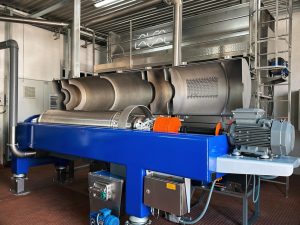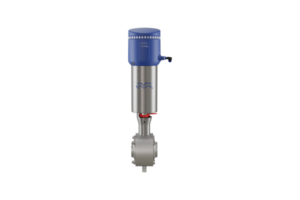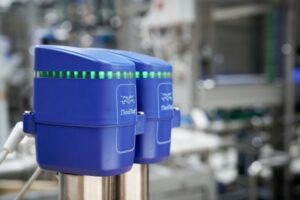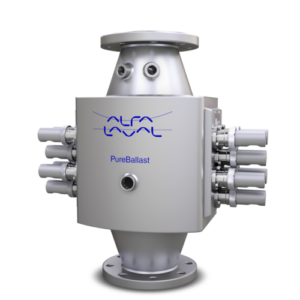Alfa Laval Brings Fluidic Air Lubrication Technology Benefits to Shipowners

Anders Lindmark - President, Business Unit Heat & Gas Systems (Image source: Alfa Laval Corporate AB)
The move will enable Alfa Laval to bring this environment-friendly technology to market contributing significantly towards improving ship efficiency, reducing fuel consumption, and minimizing emissions from ships.
Empowering energy-efficient and sustainable shipping
Having acquired a minority stake in Marine Performance Systems B.V in the year 2021, Alfa Laval has now taken the final step to fully integrate the company under its own brand. The acquisition will accelerate the advancement and introduction of the patented fluidic air lubrication system, FluidicAL into the market to support vessels to sail sustainably.
A ship’s friction when sailing is the most significant driver of its fuel consumption representing up to 60 per cent of a vessel’s operating expenditures. The advanced fluidic air lubrication system from MPS combines fluidics and air lubrication technologies to offer significant reductions in the ship’s friction when sailing. The system is unique in its use of fluidics to generate micro air bubbles with a high degree of control, maintaining an air layer that covers the full flat bottom area of the vessel for maximum effectiveness. The reduction of frictional resistance working on the ship's hull results in reduced fuel consumption.
"By adding air lubrication system into our portfolio, we are thrilled to further expand our offering of energy-efficient and sustainable solutions to our customers,” says Anders Lindmark, Business Unit President Heat & Gas Systems, Alfa Laval. “Since 2021, we have been closely supporting the development of MPS’ air lubrication technology and we are impressed with the performance of the fluidic air lubrication systems, we have installed on board vessels."
Maximizing cost savings and minimizing emissions
With its ability to provide shipowners with numerous benefits in one solution, the fluidic air lubrication technology is expected to have a significant impact on shipping decarbonization. By reducing the friction, air lubrication not only supports emission abatement but provides substantial fuel cost savings and improvement in overall ship efficiency, at a vessel’s normal service speed and a payback period below 3 years.
"In today's maritime industry, solutions that lower the operational costs and minimize emissions are more critical than ever. The air lubrication system from MPS is designed keeping in mind the needs and challenges of the shipping industry. It offers shipowners access to an easy-to-install solution that provides a perfect balance of operational and financial flexibility, while significantly reducing environmental emissions," says Anders.
The patented FluidicAL system requires no structural modifications or vessel recertification, which makes it ideal for retrofitting as well as for newbuilds. Having a minimal footprint and maximum flexibility, the system can be configured and optimised to the specific vessel’s design and operational profile ensuring integration with existing onboard technology seamlessly.
Enabling adherence to environmental regulations
Air lubrication technology is recognized by the International Maritime Organization as an “Innovative Energy Efficiency Technology” to lower carbon emissions. The technology supports compliance with Energy Efficiency Existing Ship Index, Energy Efficiency Design Index and the reduction of carbon intensity to meet IMO's carbon Intensity Indicator requirements. Besides this, the innovative fluidic air lubrication technology minimizes CO2 emissions thereby helping in limiting CO2 tax.
Source: ALFA LAVAL Corporate AB







